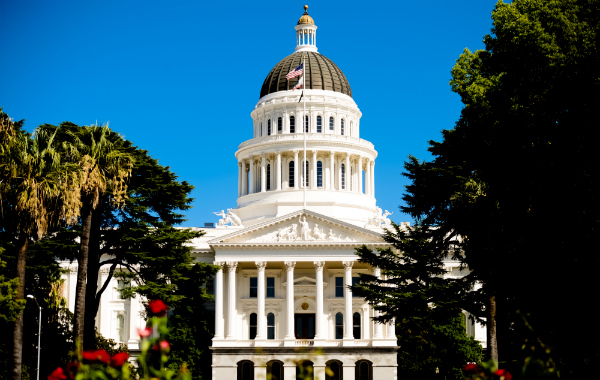
More than 40 years ago, Bob Stern was on the team that crafted California’s Political Reform Act (PRA), the incredibly detailed ethics, campaign disclosure and lobbying guidelines for elected and public officials in California. Over the last several months, the Fair Political Practices Commission, in partnership with California Forward, and law students at UC Berkeley and UC Davis, have engaged in a review and revision process intended to simplify and streamline the law.
Today, Stern reflects on that process, the many changes the PRA has gone through over its lifetime and the current project to modernize the act.
Tell us about the environment that prompted the creation of California's Political Reform Act in 1974.
The Watergate scandal involving President Richard Nixon and campaign money, among other corrupt activities, was front-page news in the early 1970s. Jerry Brown, then Secretary of State, had been aggressively enforcing California’s weak campaign disclosure laws. He had filed successful lawsuits against California oil companies and was known as California’s political reformer.
Why were you selected to participate in drafting the language? What motivated you throughout the process?
For two years, I had worked on a number of governmental reform proposals as the consultant to Henry Waxman’s Assembly Elections Committee. In the fall of 1972, Secretary of State Jerry Brown asked me to become his office’s Elections Counsel. He wanted me to draft the best possible campaign disclosure, conflicts of interest and lobbying laws. He said not to worry about the proposals passing the Legislature since he was pretty confident they wouldn’t. It was a unique opportunity to look at the very best solutions and put them into legislation. As Brown predicted, all three bills were introduced in the 1973 legislation session and quickly killed.
In the summer of 1973, a reform group, the People's Lobby, asked me to review an initiative. When I noted that their proposal had all campaign statements filed in Olympia, Washington, they sheepishly admitted that they had merely copied the Washington State initiative that had been passed by voters in 1972. So I suggested that they look at the legislation that I had drafted; a week later they asked our office to put the bills together into one proposal that they would circulate as an initiative. Deputy Secretary of State Dan Lowenstein and I (along with input from others, including Jerry Brown) combined the three bills and added a Fair Political Practices Commission to the proposal.
The People’s Lobby and Common Cause circulated the initiative and qualified it for the 1974 ballot, where 70 percent of the California electorate voted for it (Proposition 9). The PRA was now law.
What's your perspective on the many changes made to the PRA since its inception?
Starting when I was its first general counsel, the FPCC has offered a number of proposals; many were cleanup amendments and some were substantive. Since 1975, the legislature has amended the Act hundreds of times, almost all of which have improved, clarified and added reforms to the 1974 proposition.
When we drafted the Act, we knew no law was perfect, so it became one of the first initiatives to allow legislative amendments (The California Constitution says that an initiative can’t be amended by the Legislature unless the initiative permits such amendments).
Why do you think the Political Reform Act Revision Project happening now? What is it about our current environment that makes this the right time for the revisions?
Chair Jodi Remke’s goal is to simplify the Act as much as possible, and this is a good first step. Allowing amendments has provided a way for the Political Reform Act to evolve. But, over time, the Act has become too unwieldy. Although the FPPC is very helpful in providing advice and its instruction manuals are well written, it is clearly time to make the Act more coherent and easier to navigate.
The fact is, however, that the Act will never be succinct. Our goal when we created the act was to make it as clear as possible. We wanted everyone to know exactly what had to be reported. For example, we could have said: “file campaign disclosure reports.” Although that sounds simple and would have reduced the Act to a few words, we wanted to be sure to spell out all the details. When should filings happen? Who should file them? What should be in the filings: names, addresses, occupations, employers, dates of contributions, amount of contributions, loans?
Looking forward, what do you see for the PRA's future? (Continued revisions, a more substantive overhaul, etc.)
The Political Reform Act needs to be examined every few years to make sure that it is still relevant and – more importantly – is able to respond to changing times, particularly in campaigns.
Supporters of the Act should be on the lookout for attempts to weaken its provisions. People who chafe under its restrictions will try to weaken it to make their lives easier. But the public has a strong belief in disclosure–for campaigns, public officials and lobbyists. It is up to all of us who support the Political Reform Act’s principles to ensure its continued viability and success.

